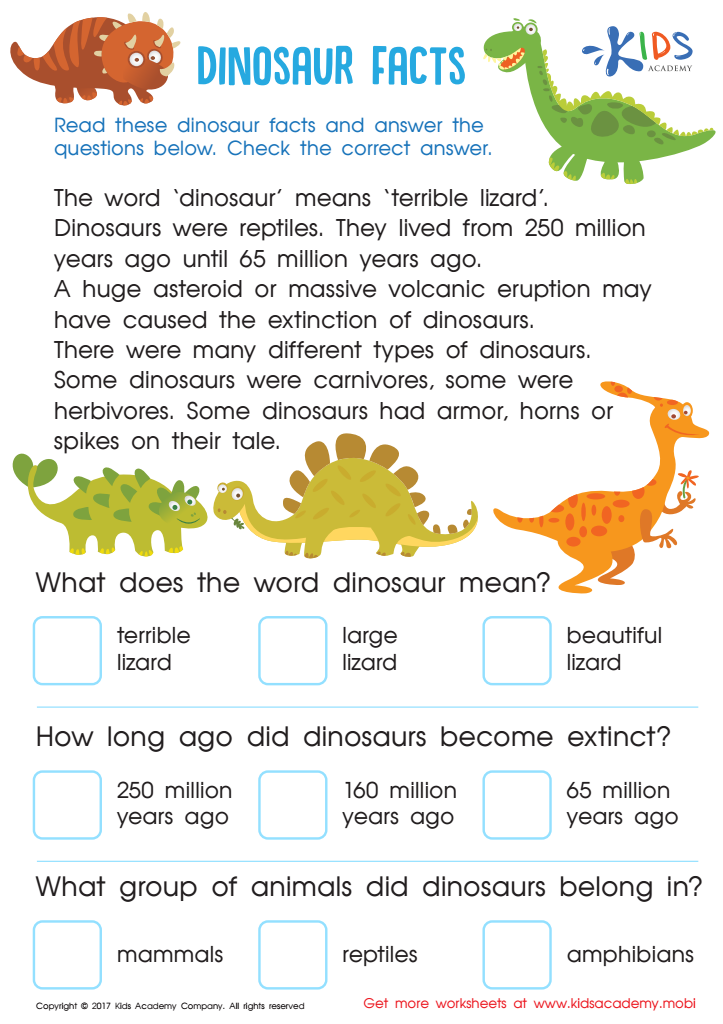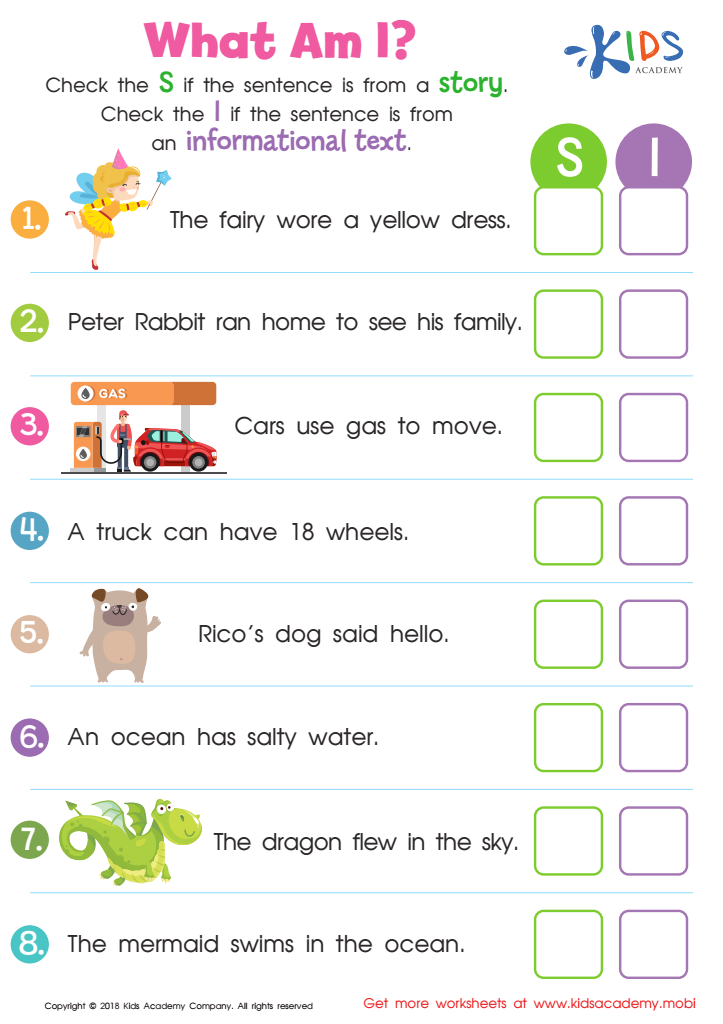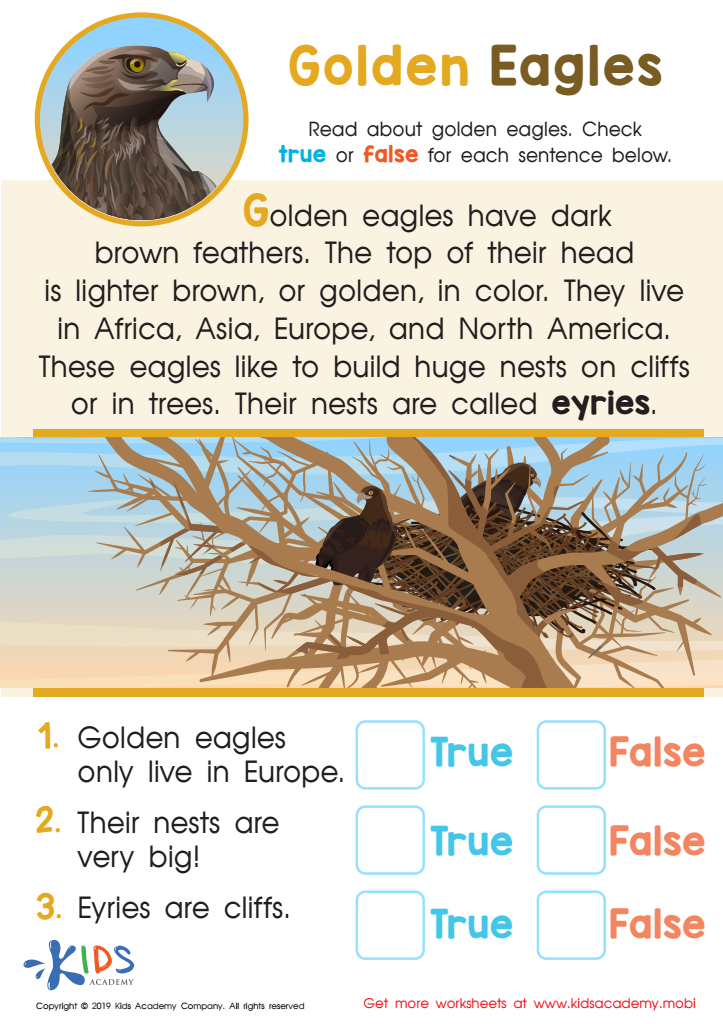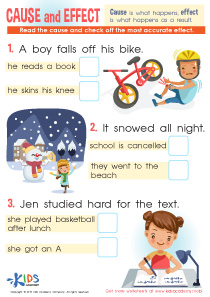Vocabulary Building Normal Reading Non-Fiction Worksheets for Ages 4-9
3 filtered results
-
From - To
Enhance your child's vocabulary skills with our engaging Vocabulary Building Normal Reading Non-Fiction Worksheets, designed for ages 4-9. These interactive resources provide young learners with the opportunity to explore a variety of non-fiction topics, expanding their understanding of the world around them. Each worksheet includes fun activities that encourage critical thinking and comprehension, making learning enjoyable and effective. Perfect for at-home learning or as classroom supplements, our worksheets promote language development and help children confidently express their ideas. Foster a love for reading and enrich your child's vocabulary with these thoughtful, age-appropriate materials that spark curiosity and creativity!


Dinosaur Facts Worksheet


What Am I? Worksheet


Golden Eagles Worksheet
Parents and teachers should prioritize vocabulary building through normal reading non-fiction for children ages 4-9 because it lays the foundation for cognitive development, critical thinking, and future academic success. Non-fiction texts expose young learners to a diverse array of concepts, ideas, and real-world information, cultivating curiosity and a love for learning. When children engage with factual content, they are introduced to new vocabulary in meaningful contexts, reinforcing word understanding and usage.
Additionally, building vocabulary in these formative years is crucial for reading comprehension. Children with a rich vocabulary can better process text information, make connections, and grasp complex ideas, which are vital skills as they encounter more challenging material. Non-fiction reading also promotes essential life skills such as critical analysis, problem-solving, and the ability to differentiate fact from opinion.
Moreover, fostering discussions about non-fiction content encourages communication skills and builds confidence in expressing ideas. As parents or educators engaged in vocabulary building, they play a significant role in shaping a child’s language development and general knowledge. This not only equips them for academic proficiency but also prepares them to navigate and contribute to an increasingly complex world. Thus, focusing on vocabulary through non-fiction is a gift that supports lifelong learning.

 Assign to My Students
Assign to My Students
















